Particles of brown dust swirl through the downturned window as the smoky Russian van shoots over parched ground, rocketing its way through the desert, impervious to its passengers sitting uncomfortably at the rear, being jolt like zaps of electricity with every bump.
The monotony of endless driving along Mother Gobi’s vast planes is at times stifling but the moments of solitude often deliver surprising rewards, packaged as comrades with equal doses of wanderlust. Unfurled, they deliver respite from overly sentimental contemplation, about my world and the nurse I play in it.
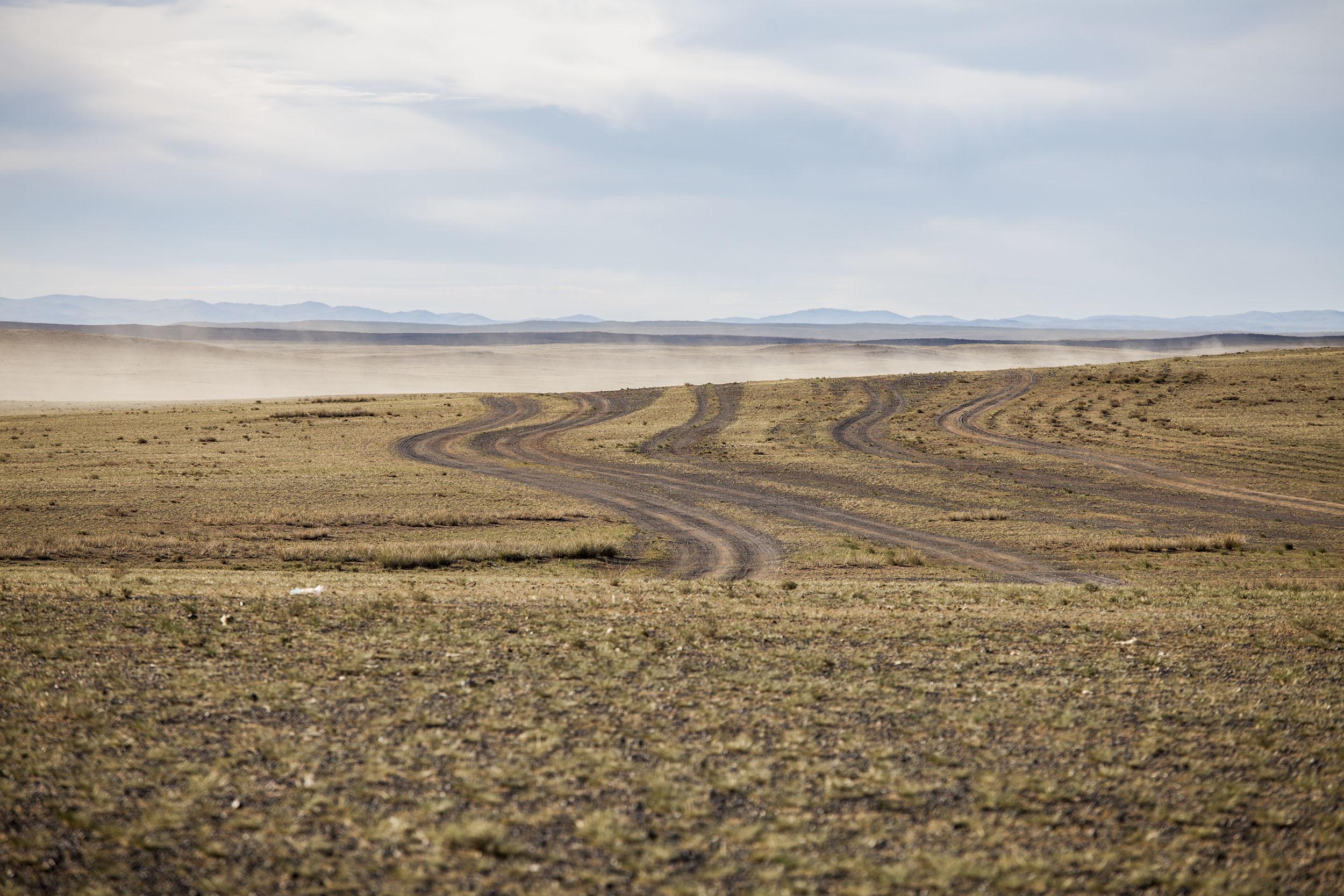
At the start of the six-day tour, we find our places in the cabin, each harbouring ideals, values and beliefs from diverse walks of life, all with a preference for a forward-facing position yet all too courteous to say.
The Canadian-born Chinese whiz-kid, a quick study who rattles off words in Mongolian learned on the Trans between Beijing and Ulaanbaatar, sits facing forward, a penchant for engaging the group in critical – and often heated – debate. Directly opposite me, beside Tommy, is the Primary teacher, a lanky English lass with a chip on her shoulder the size to match the indolent brown hair that’d elegantly cascade down her back if she ever let it hang loose.
To my right is Ariel, the girl from Hong Kong, a team player and kindred soul with a winsome nature and humble smile, soft and gentle yet tinged with sadness and insecurity. When it’s there, it comes from deep inside and spreads, moving to every part of the van, much as a spring flower opens.
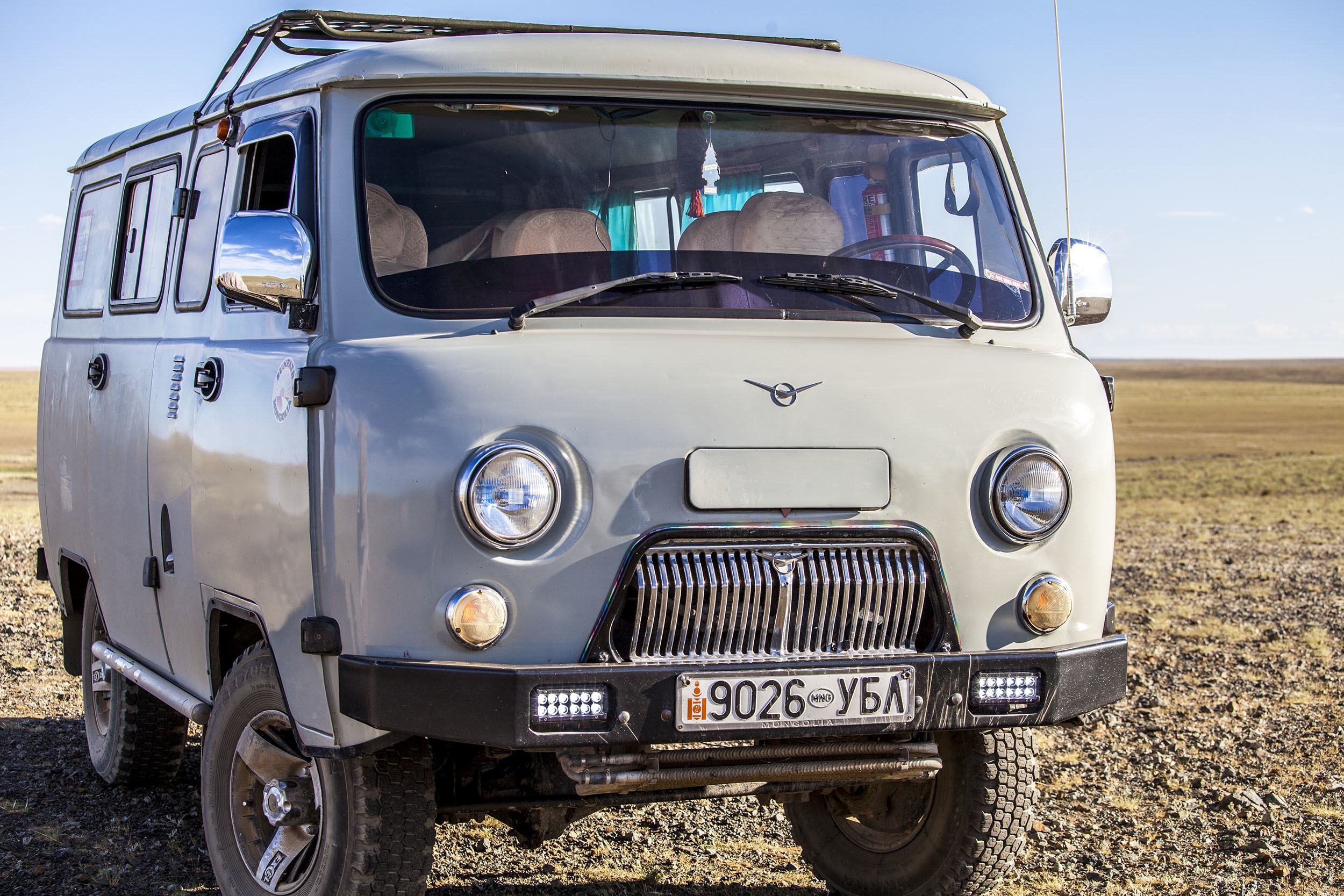
“I’m a final year nursing student” are the words that synchronously lift my chin and eyelids, solace from the routine of daze-cum-stare and the deafening roar of the van’s motor only inches from our backward-facing seats. Her expression shifts up a gear, for the woman who seems to hide her emotions behind a smile is springing to life, her words bouncing around as though a child splashing in the sea. Had we been standing on stationary ground she’d have been hopping from one foot to the other.
Set to graduate in the coming weeks, her future as a nurse in one of Hong Kong’s busiest public hospitals seems bright.
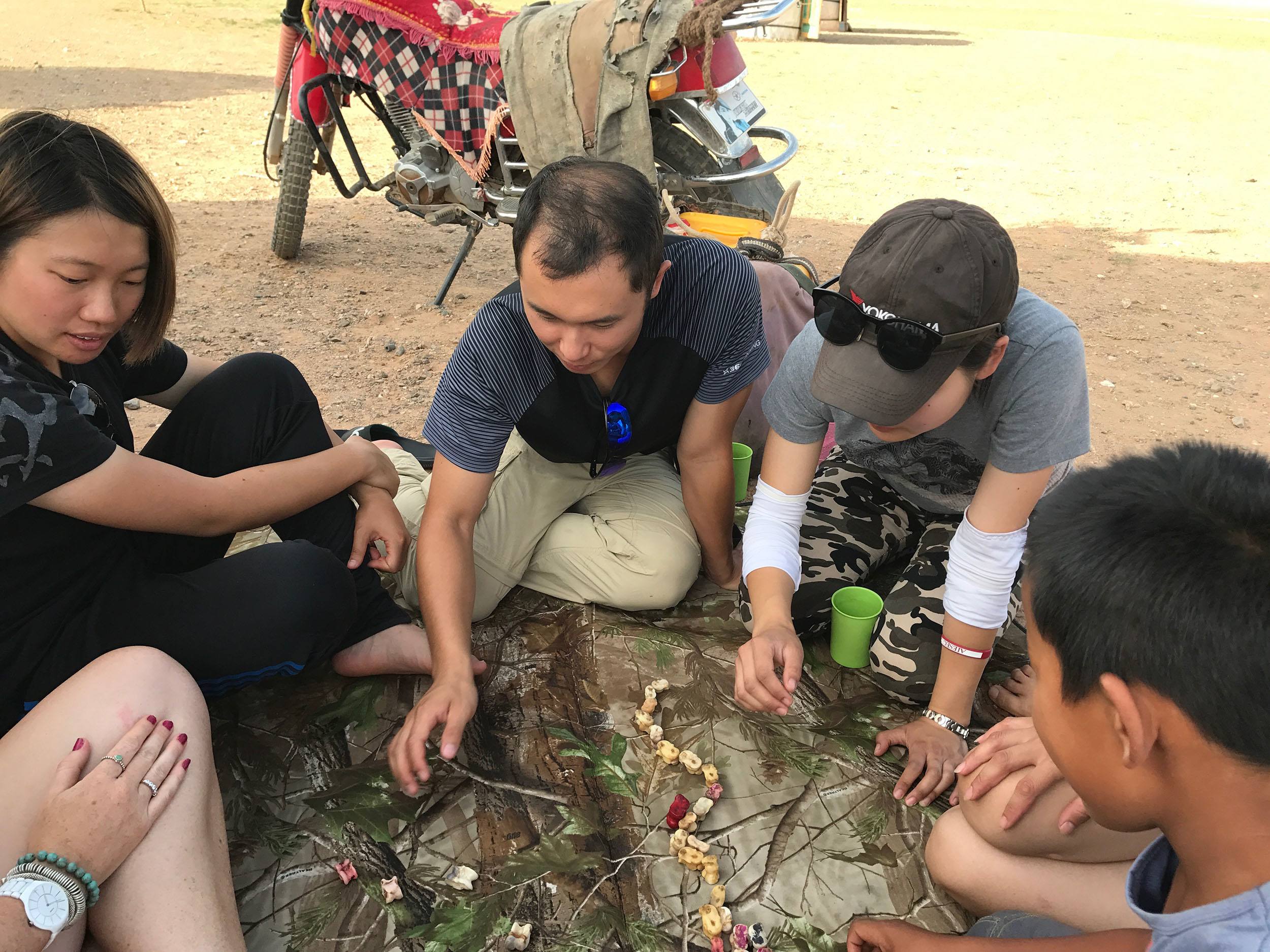
A graduate student undertaking a Masters in Nursing at The Chinese University of Hong Kong, Ariel is pragmatic when I ask about the quality of education. “The program was alright. It provided a strong base to solve medical problems. However, the nursing ... techniques are not taught in an equivalent quality.”
Moving swiftly when Tommy drops to the ground mid-hike during a break from driving monotony, Ariel tends to his injury with aptitude, already a penchant for critical thinking. Zigzagging fibres of cotton around, up and down his lower limb while seasoning each comment with salt, tells me Ariel is already a survivor.
“I had the experience of taking care of my ill family member. Back then I could not do much to help and I do not want to have the same experience in the future.”
The solemnity behind the smile emerges, a fractured soul seeking solace. “You are going to be a great nurse,” I encourage. “In fact, you already are. Let’s keep in touch.”
It’s a few months since the Gobi expedition and I contact Ariel to find out how she’s settling into her new nursing shoes. “The school did not prepare us well ... the knowledge and skills that they taught us were all too idealistic.”
“In reality, when each nurse is responsible for 10 to 12 patients, ... it is impossible to conduct the perfect practice.”
The saving grace? “Since we have the fundamental knowledge on anatomy, physiology and microbiology, it allows me to understand and predict patient conditions.”
She’s a survivor alright. Opting to work in Hong Kong’s public system, new nurses are assigned to a hospital and specialty - preferences are listed but it’s a game of Russian roulette. For Ariel and all her graduating peers, it means taking a leap of faith, putting trust in the powers to be.
Fortuitously and I dare say as a result of a resilient composition, she gets the operating theatre at Alice Ho Miu Ling Nethersole Hospital. She’s already won, a specialty with support and satisfactory nurse-to-patient ratios. “For me it is 10 people, including nurses, surgeons, anaesthetist and OT assistants, to take care of one patient.”
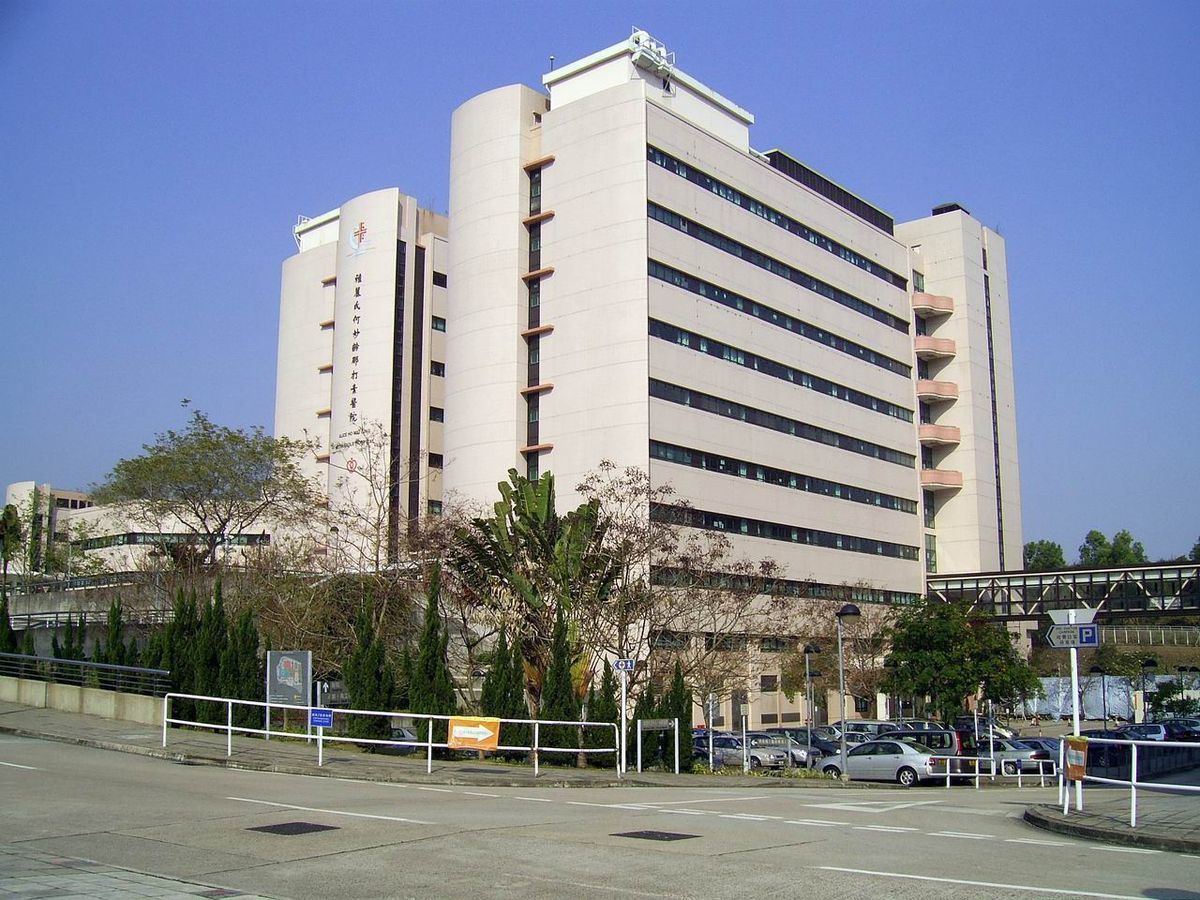
For others, it’s a different story. “In medical or surgical ward settings, in general, ... each nurse is responsible for 10-12 patients during day time. In night shifts, it is usually 1 to 15-20 patients.”
With a 44-hour working week, including five nine-hour shifts, rest from a hectic work environment is mandatory, particularly given the shortage of nurses in Hong Kong. How does Ariel escape? “I often play sports such as ... badminton or... jogging. ... Trying out different restaurants with friends is also one of the effective methods to relieve the pressure from work.”
A typical nine-hour shift in one of Hong Kong’s busy OTs isn’t a breeze. Despite adequate IT and material resources with which to provide patient care, the list of tasks is long. “Our shift starts with checking the status of our first patient on the OT list. That is to confirm whether the ward has followed the order prescribed by anaesthetist and surgeon, whether they have prescribed the medicine and bring the stuff needed for the OT.”
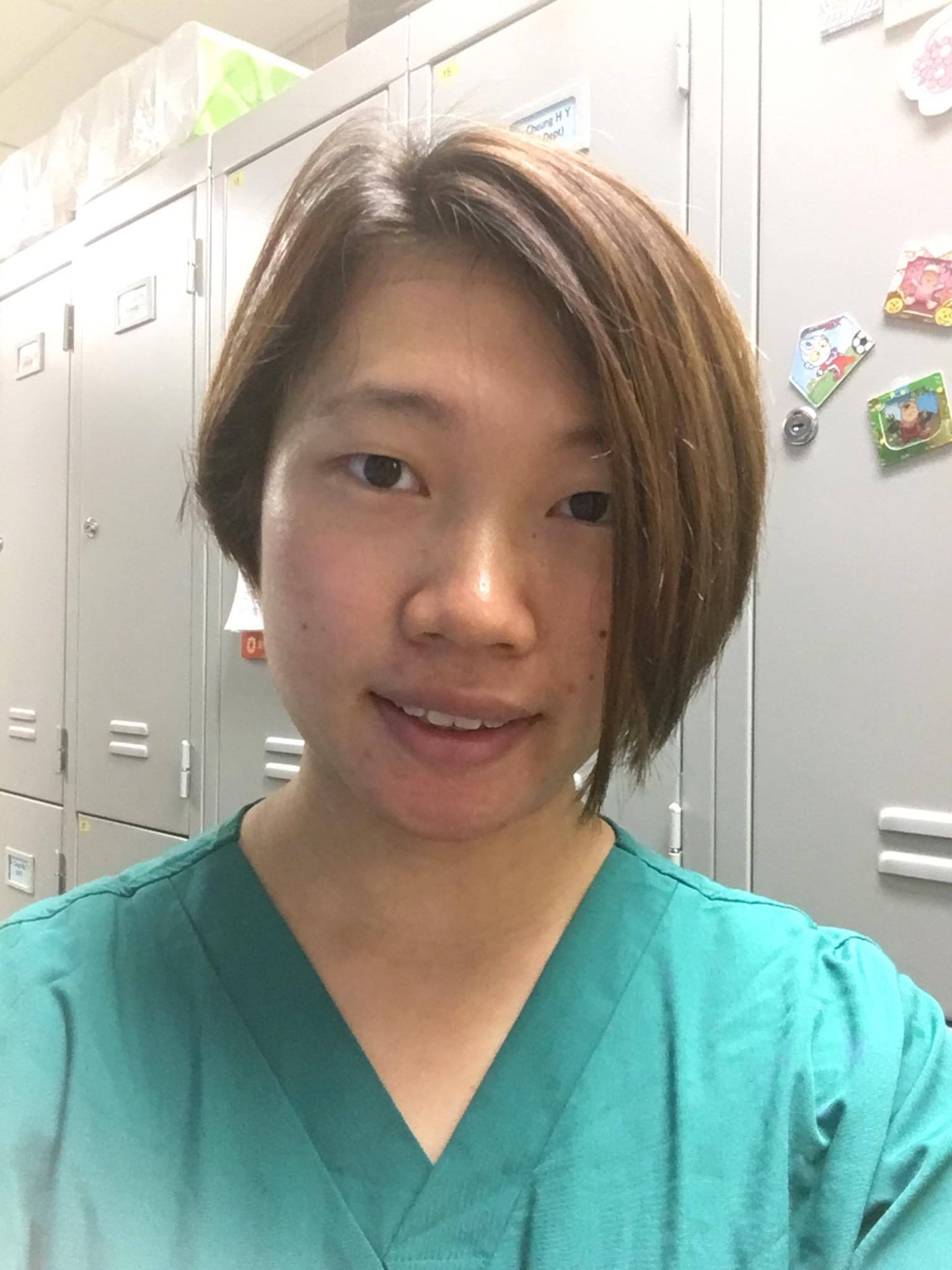
This is just the beginning. “We will confirm the patient is fit for operation by checking their lab results, ECG. The ward nurse would briefly explain patient’s condition to us too. Then the patient will be brought into theatre, ... ready for anaesthesia.”
It’s after this that the real action begins. “The scrub nurse will prepare the sterile equipment for surgeons, while the circulating nurse will help the scrub nurse ... get any extra equipment requested by the surgeons when needed as well as doing the documentation. When the operation has finished, a nurse will help to take care the patient during the process of reversing anaesthesia. The patient is then transferred to recovery room to observe her condition.”
Is there any respite from the mania? "Theoretically we have a one-hour break each day; usually it is split into a 15-minute tea break and a 45-minute mealtime. However, depending on the operation and availability of manpower, sometimes we only have mealtime."
The OT at Alice Ho Miu Ling Nethersole Hospital is a well-oiled machine in part due to amicable professional relations between staff. "Most of the doctors do not see themselves at the top of the pyramid nor do they have strong concepts of hierarchy so I see nurses and doctors interacting like friends most of the time."
Even with good support, sadly, because of high nurse to patient ratios, nursing care has become task focussed. "Even a heartfelt nurse can only provide limited holistic care." This doesn't change Ariel's resolve to ensure patient care is delivered according to each individual's needs and desires.
In terms of cultural nuances and their impact on the provision of nursing care, I get a surprise. "Chinese have a thing about making complaints. Perhaps it is because the Chinese treasure their families above everyone else. They can often be quite demanding ... simply because they think they will have a chance of receiving better services by making complaints." I hear a familiar nurse call buzzer ringing in my ears.
What about Hong Kongese men in nursing? "The number is increasing each year. Male nurses are generally not allowed to work in paediatric departments. There are also no male midwives yet." Baby steps.
Even though the Hong Kong nursing system originated in the United Kingdom, I'm curious to know if Ariel notes any differences between her hospital and nursing in more developed nations. "I do not think there are major differences between Hong Kong and more developed countries. However, I think it is quite different from United States medical system where most of their services are covered by insurance."
With a starting salary (at the time of interview in 2017) of HKD 28,000 (roughly the equivalent to US$3,600 per month), things don't look too grim for Ariel working as an OT nurse in one of Hong Kong's busy theatres.
Even though she's at the beginning of her nursing career, I sense that it'll be enduring and successful. The enthusiasm may have faded as the realities of the profession sink in, yet as the dust settles and she continues finding her nursing feet, I truly feel that Ariel will move forward even more resolute in realising her initial goal: to ensure she'll always be capable of caring for those to whom she's close.
For more nursing stories from around the globe, sign up (below) to my newsletter and regularly check this page for new articles.





